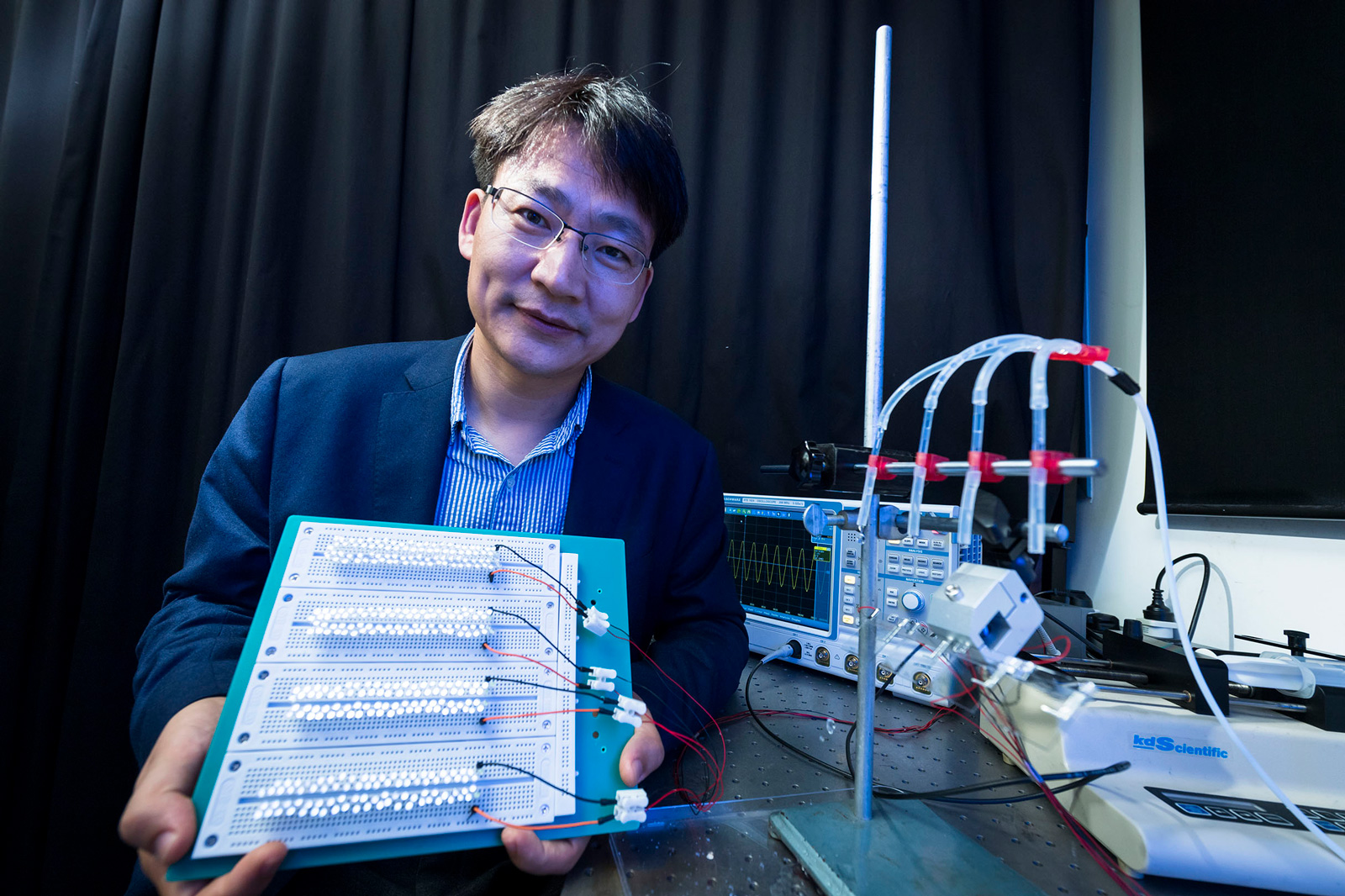CityU scholar wins Tencent’s Xplorer Prize

Professor Wang Zuankai of City University of Hong Kong (CityU) won the 2020 Xplorer Prize organised by the Tencent Foundation for his fundamental research on water energy harvesting as well as nature-inspired engineering. The related research will have a profound impact on addressing the global energy shortage problem.
The Xplorer Prize aims to support Chinese young scientists working in areas of fundamental science and cutting-edge technologies. Each winner will get a sum of RMB 3 million over the course of five years.
Professor Wang, concurrently Associate Dean (Internationalisation and Industry Engagement) in the College of Engineering and Professor in the Department of Mechanical Engineering and in the Department of Materials Science and Engineering, won in the category of Advanced Manufacturing. His research breakthroughs are in the areas of nature-inspired materials and energy harvesting. One of his recent research projects, the new droplet-based electricity generator, shows that a drop of 100 microlitres [1 microlitre = one-millionth litre] of water can generate a voltage of over 140V, and the power generated can light up 100 small LED lights.
Professor Wang was honoured to win the prize. “I’m very grateful to the University community for their support, which enabled me to conduct research that I enjoy a lot. My gratitude also goes to Tencent, whose investment on science and future is visionary. Scientific research has no boundary. I hope this prize can inspire young scholars to explore further,” he said.
Titled “A universal strategy for efficient water energy harvesting: from fundamental understanding to practical applications”, his winning project aims at exploring the basic principles underpinning efficient energy generation rendered by combining super-slippery lubricant surfaces with bulk effect structure; engineering durable dielectric materials that are capable of shedding liquid rapidly, building up high charge density on the surface, and applying to various harsh conditions; as well as leveraging the synergy from super-slippery surfaces and bulk effect structure to develop efficient energy harvesting devices applicable to a wide range of environmental conditions, energy sources and formats, interfaces or scales.
Energy shortage is a pressing global problem, and scientists around the world are researching the efficient use of renewable energy. The existing hydroelectric power generation technologies have defects such as low-charge density and low energy power density, and are difficult to be applied in harsh environments, which limit the prospects of application.
Professor Wang’s research is of great significance because he develops novel mechanisms and technologies that combine super-slippery surfaces and bulk effect structure to tackle the current problems in hydroelectric power generation.
He plans to use dielectric materials, including a variety of fluorinated polymers and lubricants, to develop super-slippery surfaces that can be used in different environments and climates. These surfaces can promote the rapid detachment of liquid, thereby achieving surface charge generation, transfer and even high-density storage, and significantly improve the durability and stability of the device in different environments.
He also proposes to use an electrode design similar to a transistor structure to transform the traditional surface effect into a more efficient bulk effect, and as a result, both the power density and energy conversion efficiency can be highly enhanced. The reversible transfer between the charge and the electrodes can also be achieved, ensuring the stability of long-term output. Similar designs have been applied to the research and development of new water droplet generators.
Established since 2019, the Xplorer Prize this year is extended to young scientists from Hong Kong and Macau engaging in full-time scientific research.